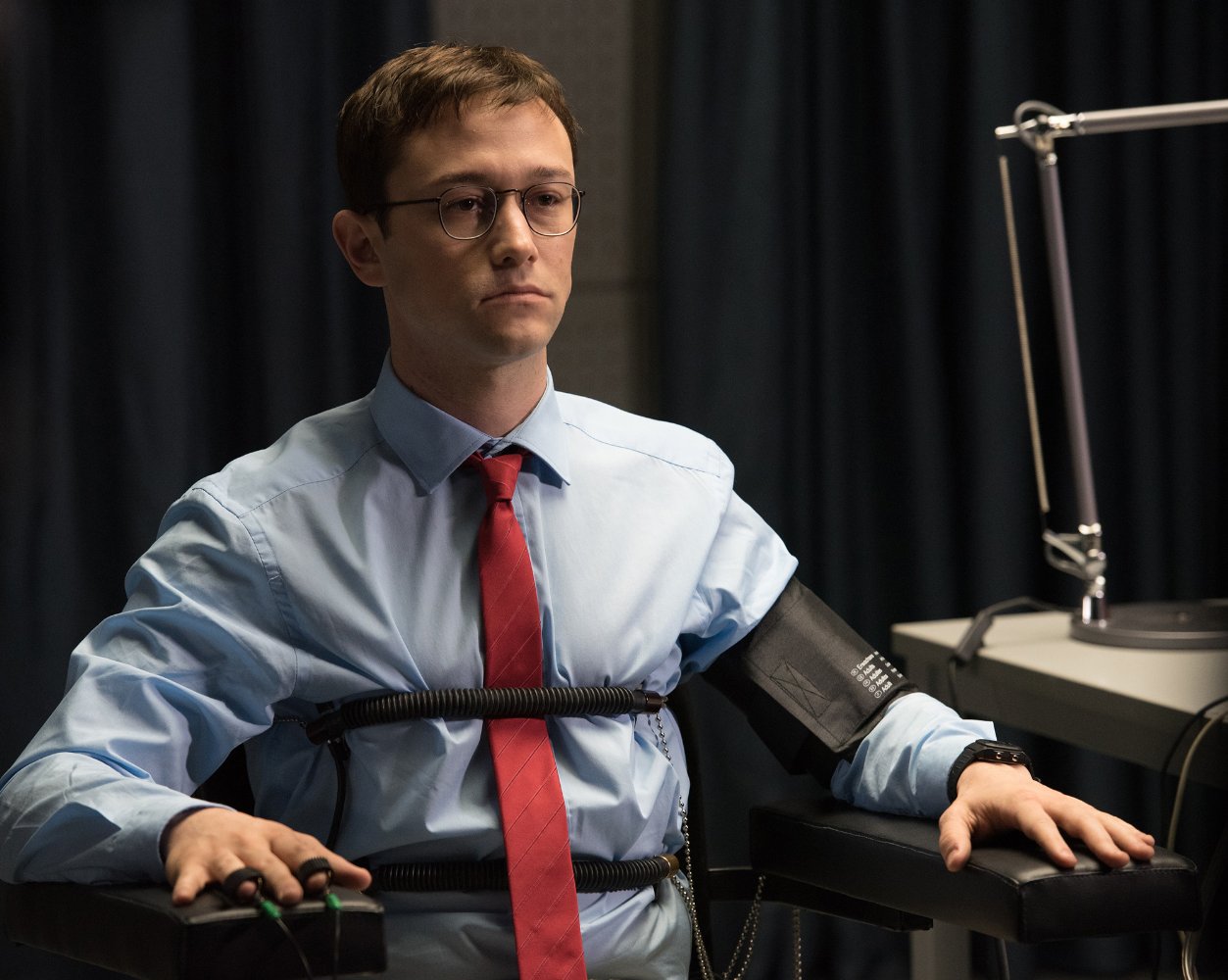By Richard von Busack
Oliver Stone’s over-emphatic style can be alienating, particularly when he’s over-explaining things that don’t need explaining, while leaving the more interesting details glossed over. Snowden is more of a generic hero’s struggle that ends upbeat, with the title whistleblower (Joseph Gordon-Levitt) receiving hugs and applause.
Edward Snowden was an employee of the CIA and the NSA (one good anti-joke here: It stands for “No Such Agency”). Snowden finally went public with documents explaining how the massive surveillance program worked, with the help of selected journalists Laura Poitras (Melissa Leo), Glenn Greenwald (Zachary Quinto) and the Guardian’s Ewen MacAskill (Tom Wilkinson), to whom Snowden gave a long briefing session in a Hong Kong hotel room.
In flashback, we follow Snowden’s younger life. After enlisting in the CIA, he meets Lindsay (Shailene Woodley), a left-winger who is against the Iraq War. The deep feelings people had for or against that war are reduced to the minor complications in a rom-com. Over the course of assignments in posts as far apart as Geneva, Tokyo and Hawaii, Snowden absorbs a punishing workload, which batters his relationship. Snowden may be most interesting when it demonstrates the kind of cyber-workaholism that makes a purgatory out of Oahu, even.
Stone has a talented, very abstract cinematographer—Anthony Dod Mantle, a collaborator with Danny Boyle and Lars von Trier. Mantle brings out the hot scribbles of color on Hong Kong skyscrapers, the cold glow of blue-white glass booths that the analysts inhabit when they’re gathering data.
Stone explains Snowden with ease: He turned whistleblower because The Man went after the woman he loved. The problem, as in Citizenfour, is that Snowden is telling a story that isn’t finished yet. While Snowden likely deserves to be pardoned, there’s a certain fishiness to his story, some part of it we haven’t got yet. And you’d have to be less credulous than Oliver Stone to discern that lack.






